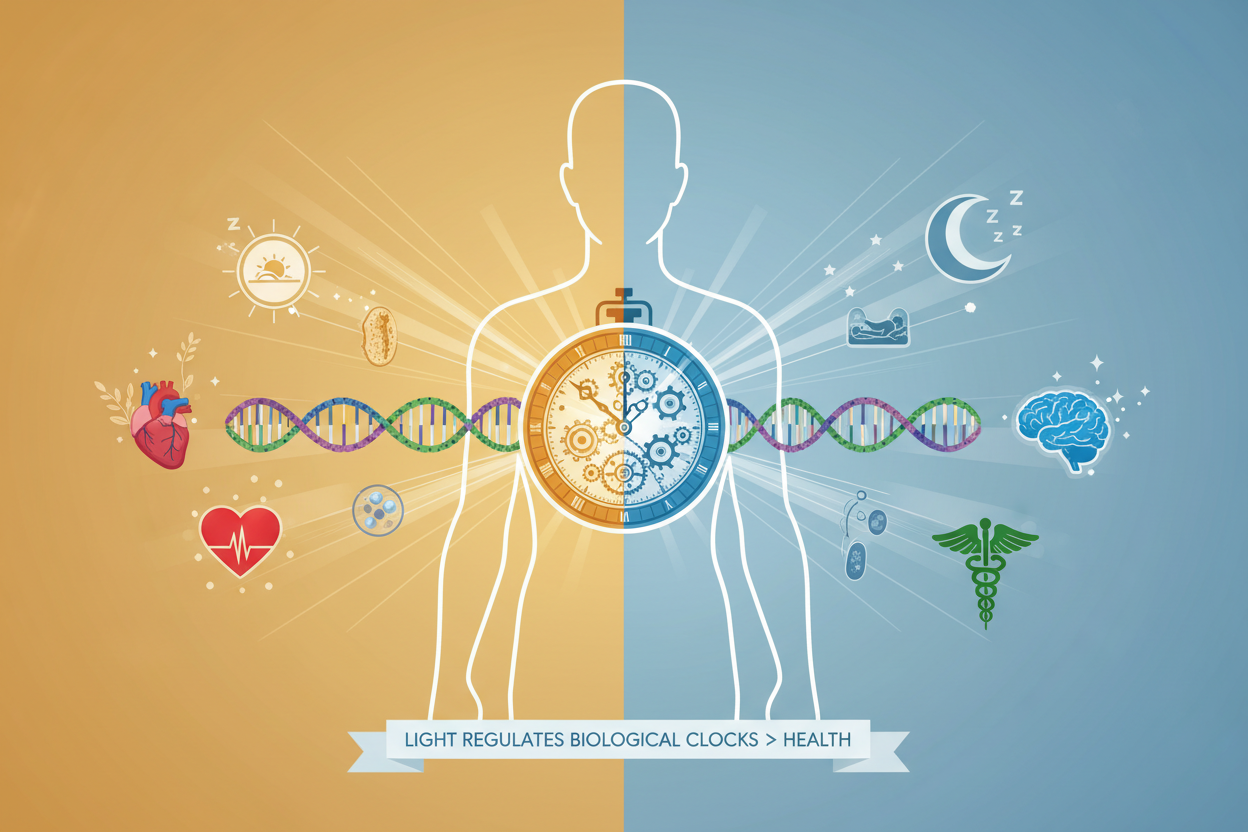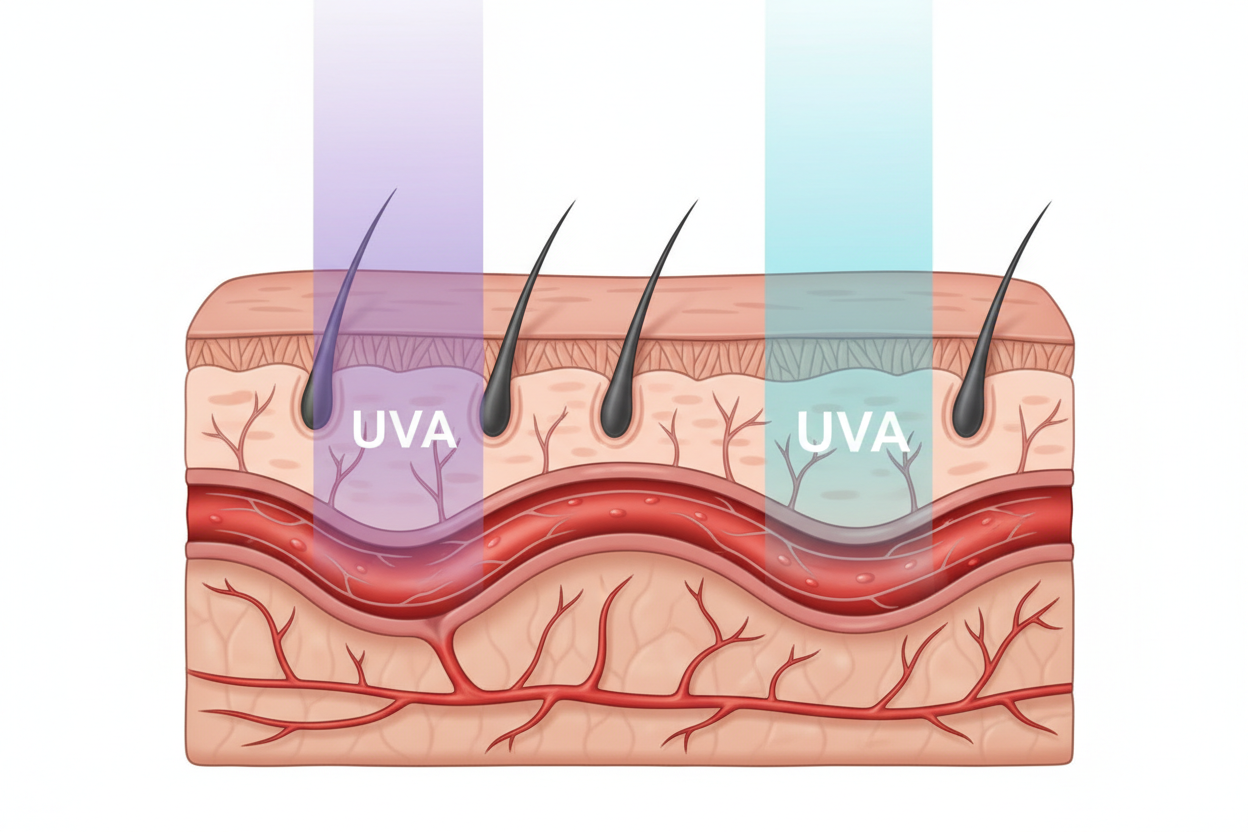Article: Debate about natural and synthetic vitamins: What you should know

Debate about natural and synthetic vitamins: What you should know
Your body needs a constant supply of vitamins and minerals to function properly, but it cannot produce them on its own. A balanced and wholesome diet is still a great way to get essential nutrients, but relying solely on food can make it challenging to obtain enough vitamins and minerals needed for optimal health. It’s clear that conventional farming methods have depleted the soil of vital nutrients, making our food less nutritious. So even if you stick to a balanced and healthy diet, you might still fall short of the recommended daily intake of certain nutrients.
Not to mention the constant demands of a hectic lifestyle that is always on the move, and the anxiety and chronic stress that leave most people with no time to prepare and consume a wide range of nutrients from natural sources.
Today's fast-paced world forces many of us to consume processed and fortified foods because they are more convenient and taste better. Unfortunately, food processing also strips away many vital nutrients, contributing to the increasing prevalence of vitamin deficiencies, food allergies, and chronic diseases.
Given that our food is now nutrient-poor, supplementing missing nutrients with dietary supplements is becoming increasingly popular in the world of health and nutrition. The market for vitamins and dietary supplements has therefore grown rapidly, offering consumers a dizzying array of options. Among these options, you may have come across the terms “natural” and “synthetic” vitamins.
In this blog, we will objectively explore the scientific insights on synthetic and natural nutrients, delving deeper into their differences, production methods, and their advantages and disadvantages to help you make an informed decision about your health and well-being.
What are synthetic vitamins and how are they made?
Synthetic vitamins are dietary supplements artificially produced in industrial or laboratory settings to mimic the way the body absorbs nutrients from food. They are typically made through chemical processes that involve the extraction, isolation, and synthesis of specific vitamin compounds.
You might be wondering now: "Are synthetic vitamins bad?"
Although synthetic dietary supplements are designed to mimic the function and structure of their natural counterparts, they often lack the full range of nutrients, enzymes, and trace minerals found in natural vitamins.
With this in mind, let's explore the reasons why it would be better to avoid using dietary supplements made from synthetic ingredients.
5 reasons to avoid synthetic vitamin supplements
1. Synthetic vitamins do not contain trace minerals, enzymes, or cofactors.
Trace minerals, enzymes, and cofactors are essential for the optimal absorption and utilization of vitamins. These components facilitate chemical reactions and assist in the transport of key nutrients across cell membranes. Without these "helper molecules," synthetic vitamins may not be effectively absorbed, limiting their efficacy and potentially leading to insufficient nutrient levels in the body.
2. Synthetic vitamins can cause their deficiency*
Vitamins and minerals work synergistically – meaning their optimal function depends on the presence of other substances. For example, vitamin D is essential for calcium absorption, and magnesium helps regulate calcium levels in the body. If you take synthetic nutrients without accompanying cofactors, it can disrupt the balance of these interdependent nutrients, potentially leading to an imbalance or vitamin deficiency*.
3. Synthetic vitamins are not absorbed as easily as natural vitamins*.
Although synthetic vitamins are presented as "chemically identical" to their natural form, the body may not easily recognize them*. They can act, look, and taste natural, but synthetic nutrients may not be absorbed in the same way your body would absorb natural vitamins*.
Let's take folic acid and folate as an example.
Although previous studies suggest that folic acid, the synthetic form of folate, can provide similar benefits to natural folate, there are significant differences in how the body processes these two substances. Folic acid requires conversion to the active form of folate, known as 5-methyltetrahydrofolate (5-MTHF), before the body can effectively use it. This additional step can lead to inefficient absorption and, in some cases, even block the absorption of natural folate. Relying on synthetic folic acid is therefore not the best choice for ensuring adequate folate levels in the body, especially for expectant mothers.*
4. Synthetic vitamins cannot be immediately ruled out*
Synthetic dietary supplements often contain high amounts of nutrients. This formulation is based on the assumption that providing higher doses will help ensure the body receives the necessary nutrients, even if the absorption rate is lower. However, these increased doses can pose potential health risks, as an excess of vitamins can accumulate and eventually become toxic to the body*.
As you may already know, vitamins occur in both fat-soluble and water-soluble forms. When taken in excess, water-soluble vitamins, such as vitamin B, are excreted by the kidneys in the urine. On the other hand, if you take a fat-soluble vitamin, it won't be eliminated as easily and is likely to accumulate in fat cells – which can lead to serious side effects.
For example, if a pregnant mother takes high doses of vitamin A, the risk of birth defects in the baby increases.* Therefore, pregnant women should be especially cautious with their vitamin A intake and consult a specialist about the recommended safe dosage.
5. Synthetic vitamins can become toxic over time*
It is important to understand that the FDA does not review dietary supplements before they reach the market, which means there can be fraud involving dietary supplements.
Previous studies have found that insufficient regulation of commercially sold vitamin supplements has made them unsafe, leading to numerous market withdrawals and false claims.
Some synthetic dietary supplements may contain more or fewer nutrients than stated on the label, or they may even contain substances not listed on the label at all. Taking large amounts of synthetic nutrients can harm your health because an excess of vitamins and minerals puts strain on the kidneys.* Many synthetic vitamins are also crystalline. Crystals in the bloodstream cause damage and unwanted accumulation of minerals where they are not needed, such as in the joints.*
Another problem with synthetic vitamins is that they contain residual traces of certain solvents and chemical compounds, such as acetate, chloroform, hexane, petroleum, and glyphosate (herbicide). It's no wonder that studies link synthetic vitamins to an increased risk of cancer*.
Although these substances are used in manufacturing and are not intended to be part of the final product, their presence, even in small amounts, can still pose a health risk. Long-term consumption of synthetic vitamins containing these impurities may lead to a cumulative effect, which, based on studies, raises concerns about their safety and potential carcinogenic impact on human health. When choosing suitable vitamins, it is important to select natural dietary supplements from reputable brands that are third-party tested and FDA approved.
Why are natural supplements better than synthetic vitamins?
Natural dietary supplements are made by concentrating and condensing specific fruits, vegetables, and other natural foods into a suitable form that allows the body to obtain an optimal amount of each nutrient in a single serving*. They typically contain a range of vitamins, minerals, and other compounds found in their food sources, which can offer several advantages over synthetic vitamins:
3 Benefits of Natural Dietary Supplements
1. Synergistic Effects and Co-nutrients
Natural supplements are full of essential nutrients, vitamins, minerals, and bioactive compounds. They all work synergistically, meaning they interact and support each other to enhance various biological processes in the body.
For example, B vitamins act as cofactors for various enzymes involved in the metabolism of carbohydrates, fats, and proteins, while minerals such as magnesium and zinc are essential for energy production and cellular functions.
2. Better absorption and bioavailability
Studies suggest that the body absorbs vitamins better in their natural form. One of the key advantages of natural supplements over their synthetic counterparts is that they contain concentrated amounts of bioavailable components that the body can easily absorb and utilize. These bioavailable nutrients are often derived from whole foods and natural sources, making them more compatible with our body's metabolic processes.
Rachel Baker, a registered dietitian and manager of scientific content and communications at GNC, states that the absorption rate can depend on the presence of other nutrients in the body. Striving for a varied and balanced diet is extremely important, as it provides an excellent source of essential nutrients, allowing supplements to target specific biochemical pathways in the body for optimal health.
3. Lower risk of side effects and interactions
Natural dietary supplements are typically made from plant-based and natural ingredients and do not contain synthetic chemicals or artificial additives, making them less likely to cause harmful side effects or interactions with other prescription medications.



Leave a comment
This site is protected by hCaptcha and the hCaptcha Privacy Policy and Terms of Service apply.